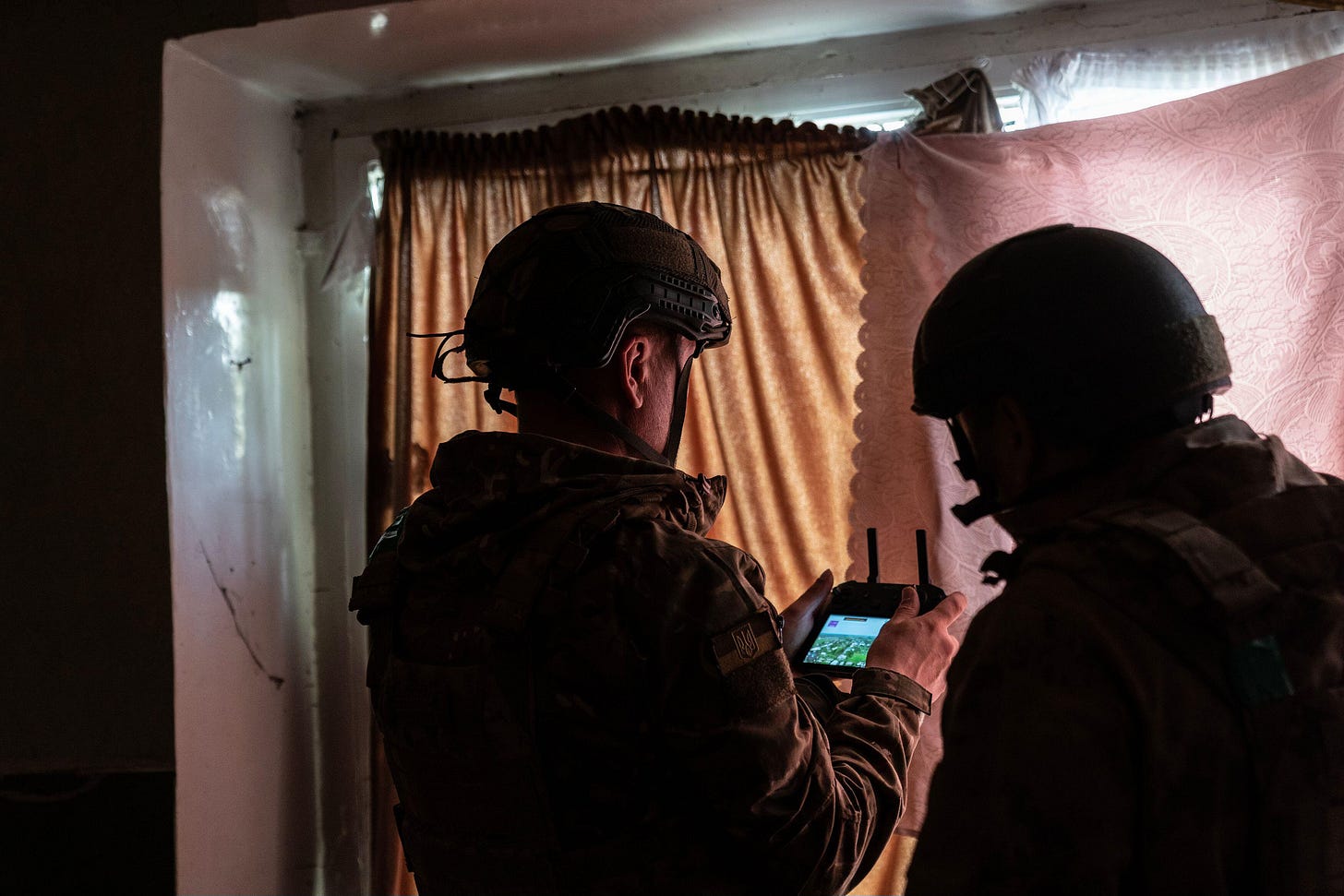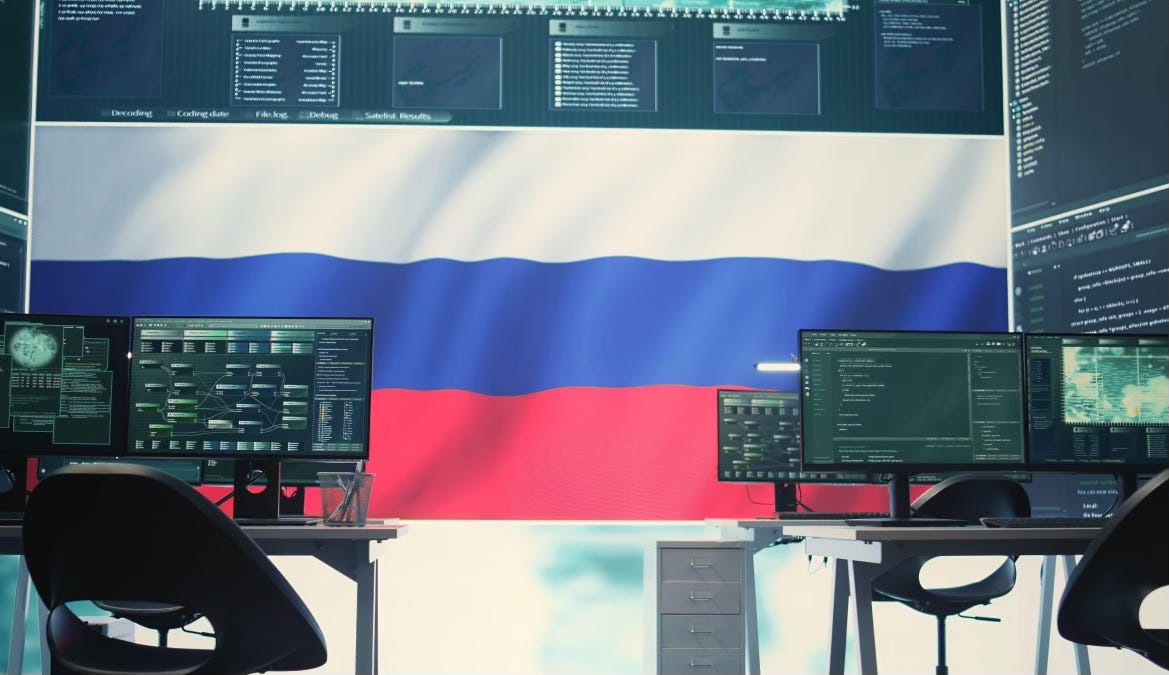Washington's dramatic intelligence realignment
America's decision to halt aid has major implications for Ukrainian intelligence gathering and space-based surveillance.

As Ukraine and its allies reel from news that Kyiv’s biggest donor is halting all military aid to the war-torn country, a company owned by Trump’s so-called First Buddy, SpaceX, is being thrust into the limelight.
Why so?
Because one of the most worrying immediate impacts of this shock US decision is the potential implication for Ukrainian intelligence gathering.
While the US is Kyiv’s biggest individual donor by a mile, Europe as a whole provides marginally more aid to Ukraine - about 60 per cent of the total. Meaning it could be months before the impact of Washington withdrawing its support is really felt on the frontline in terms of arms and ammunition.
However, when it comes to intelligence and space-based surveillance, the US is an indispensable ally to Kyiv. This intelligence gathering is not just provided by the US military, but by commercial companies too. Which brings us back to Trump’s First Buddy.
Starlink, the satellite communication network owned by Elon Musk’s SpaceX, has been a lifeline for Ukrainian soldiers and drone pilots, who use the technology to relay the latest information on the battlefield.
An estimated 42,000 Starlink terminals are in operation in the country. According to the BBC’s defence correspondent, Jonathan Beale: “Every Ukrainian position I have visited on the frontline has a Starlink dish”. While around half of these terminals are funded by Poland, they are also heavily financed by the US Department of Defence. This latter mode of financing seems unlikely to endure.
Even before its escalatory aid suspension, Washington was already using Starlink as leverage, according to Reuters. On 21 February, citing three sources familiar with the negotiations, it reported that Washington was threatening to cut off Kyiv’s access to Starlink satellite internet terminals unless Ukraine agreed to sign a minerals deal. Musk has denied these reports.
Clearly, Starlink can no longer be relied upon. The need for a replacement could create a big opportunity for OneWeb, the London-based subsidiary of French satellite company Eutelsat, which insisted this week that it is ready to “swiftly deploy” equipment to Ukraine. Shares in Eutelsat, which is 10 per cent owned by the UK taxpayer, have risen by 200 per cent since Friday.
Doubts remain over whether OneWeb’s pricier satellite receivers are as well suited to battlefield operations as Starlink’s. Though Eutelsat insists that, despite having far fewer satellites orbiting the Earth than Musk’s company, when it comes to Europe, it “offers the same capabilities as Starlink in terms of coverage and latency”.
Ukraine would be following in the footsteps of Taiwan, which signed a deal with OneWeb last year after talks with Starlink broke down. At the time, it was reported this potential deal collapsed because SpaceX insisted on having majority ownership over a proposed joint venture, a demand incompatible with local Taiwanese laws. However in late November, an explosive report in the Wall Street Journal claimed that Musk been in regular contact with the Russian president, Vladimir Putin, and had agreed to keep Starlink away from Taiwan on request from the Kremlin, as a favour to Putin’s ally, China’s Xi Jinping.
Intelligence is a key area in which the dramatic shift in the global world order is being thrown into sharp relief.
In February 2024, US intelligence agencies published their annual threat assessment, warning of the major cybersecurity threat that Moscow poses to US infrastructure.
A year on, as Ukraine anticipates that the US will prevent it from gathering intelligence to help it fend off Russia’s invasion, back in Washington, US agencies are reportedly being told to no longer characterise Russia as a cyber threat against national security.
Another extraordinary re-alignment.
Caitlin Allen
Deputy Editor
Adam Boulton
Patriotic Keir Starmer has finally hit his stride
David Waywell
We're at war - but this isn't just a battle between nations
ALSO KNOW
Tariff war – US and European stock markets have fallen today, after Trump's 25% tariffs on imports from Canada and Mexico began, as well as his increased duties on Chinese goods of 20 per cent, double the prior amount. Beijing has vowed to fight the US "to the bitter end", announcing tariffs on US agricultural goods and export curbs; Canada has said it will implement 25 per cent tariffs against $155bn worth of American goods, and Mexico says it will outline retaliatory action on Sunday. Following the latest trade escalation, the Dow Jones, the S&P 500 and Nasdaq were all down 1.4 per cent. In Germany, the Dax ended was 3.5 per cent lower while France's Cac finished down 2 per cent.
Gaza ceasefire in peril - Concern is growing that the second stage of Gaza's ceasefire deal won’t go ahead and Israel will instead resume its military offensive in Gaza. Under the Hamas-Israel agreement, which came into effect on 19 January, this is the week when Israel should be pulling its troops from the Philadelphi corridor along the Egypt-Gaza border and negotiations should intensify to end the war, return all the remaining hostages, and release more Palestinian prisoners in exchange. Now, Benjamin Netanyahu, backed by the US, has said he wants the first stage of the ceasefire to be extended for another 50 days, instead of moving to phase two, and has halted all humanitarian aid to Gaza until Hamas accepts this new deal. So far, Hamas has refused, denouncing the offer as "a blatant attempt to evade the agreement”.
Global obesity crisis - Over half of all adults around the world are predicted to be overweight or obese by 2050, according to a new study published in The Lancet, covering more than 200 countries. Researchers warn that obesity levels are predicted to accelerate rapidly during the remainder of this decade, particularly in lower-income countries.
World’s largest iceberg – The world’s oldest and largest iceberg, twice the size of Greater London, has run aground near the British island of South Georgia. Scientists say that when A23a - which weighs nearly one trillion tonnes - starts to break up, the amount of nutrients inside the ice could lead to create a vast amount of life in the ocean.
FIVE THINGS
2. Xi Jinping’s moment of truth. Jonathan Fenby in Engelsberg Ideas.
3. Nigel Farage will regret his anti-Zelensky comments. James Hanson in The Spectator.
4. How reparations for Assad’s victims can bring stability to a broken country, in Foreign Affairs.
5. The thinker who explains Trump’s tariffs. Adam Rowe in Compact.




